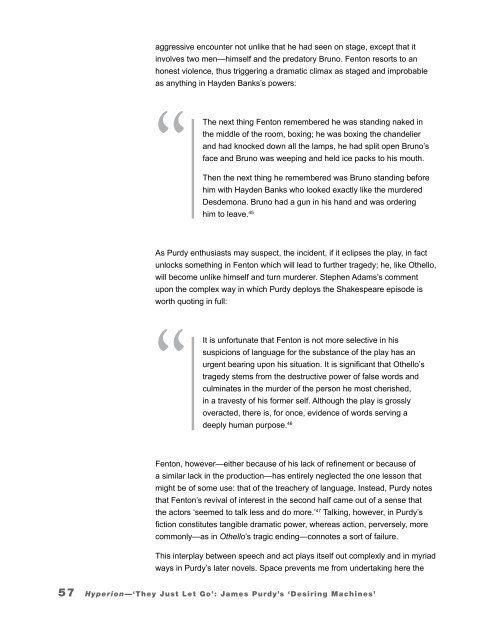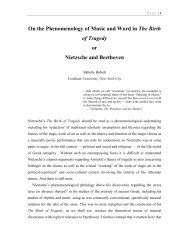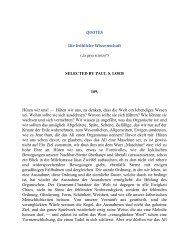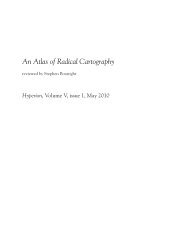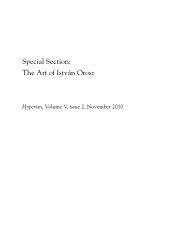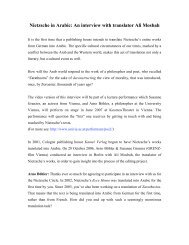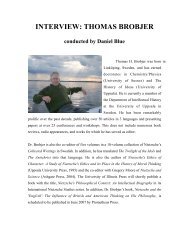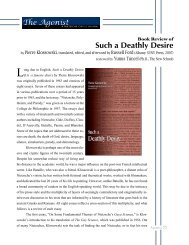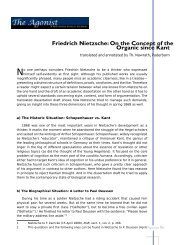Hyperion - Nietzsche Circle
Hyperion - Nietzsche Circle
Hyperion - Nietzsche Circle
You also want an ePaper? Increase the reach of your titles
YUMPU automatically turns print PDFs into web optimized ePapers that Google loves.
aggressive encounter not unlike that he had seen on stage, except that it<br />
involves two men—himself and the predatory Bruno. Fenton resorts to an<br />
honest violence, thus triggering a dramatic climax as staged and improbable<br />
as anything in Hayden Banks’s powers:<br />
“<br />
The next thing Fenton remembered he was standing naked in<br />
the middle of the room, boxing; he was boxing the chandelier<br />
and had knocked down all the lamps, he had split open Bruno’s<br />
face and Bruno was weeping and held ice packs to his mouth.<br />
Then the next thing he remembered was Bruno standing before<br />
him with Hayden Banks who looked exactly like the murdered<br />
Desdemona. Bruno had a gun in his hand and was ordering<br />
him to leave. 45<br />
As Purdy enthusiasts may suspect, the incident, if it eclipses the play, in fact<br />
unlocks something in Fenton which will lead to further tragedy; he, like Othello,<br />
will become unlike himself and turn murderer. Stephen Adams’s comment<br />
upon the complex way in which Purdy deploys the Shakespeare episode is<br />
worth quoting in full:<br />
“<br />
It is unfortunate that Fenton is not more selective in his<br />
suspicions of language for the substance of the play has an<br />
urgent bearing upon his situation. It is significant that Othello’s<br />
tragedy stems from the destructive power of false words and<br />
culminates in the murder of the person he most cherished,<br />
in a travesty of his former self. Although the play is grossly<br />
overacted, there is, for once, evidence of words serving a<br />
deeply human purpose. 46<br />
Fenton, however—either because of his lack of refinement or because of<br />
a similar lack in the production—has entirely neglected the one lesson that<br />
might be of some use: that of the treachery of language. Instead, Purdy notes<br />
that Fenton’s revival of interest in the second half came out of a sense that<br />
the actors ‘seemed to talk less and do more.’ 47 Talking, however, in Purdy’s<br />
fiction constitutes tangible dramatic power, whereas action, perversely, more<br />
commonly—as in Othello’s tragic ending—connotes a sort of failure.<br />
This interplay between speech and act plays itself out complexly and in myriad<br />
ways in Purdy’s later novels. Space prevents me from undertaking here the<br />
57 <strong>Hyperion</strong>—‘They Just Let Go’: James Purdy’s ‘Desiring Machines’


